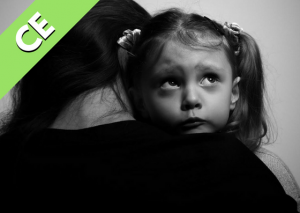The Psychological Effects of Emotional Hunger

In this Webinar:
This Webinar with Dr. Lisa Firestone will help individuals and therapists make sense of the serious psychological consequences of emotional hunger and will clarify the confusion between what might look like love from real, nurturing love. This distinction helps a person to understand and make sense of the impact of having an emotionally hungry parent on their psychological development and on their relationships, especially with partners and children.
- How to distinguish between emotional hunger and love, including examples of both
- The serious psychological impact of emotional hunger
- How to identify whether a person is experiencing emotional hunger or love
- The underlying causes of emotional hunger
- How to develop a more compassionate attitude toward yourself if you have been impacted by emotional hunger
- Methods for breaking maladaptive patterns that result from having an emotionally hungry parent
- Ways to develop more inner security
- How to shift to being more loving, and less emotionally hungry
The Webinar will draw on Dr. Robert Firestone’s theoretical understanding of emotional hunger as well as attachment theory to explore the causes and consequences of emotional hunger. It will illuminate how a person can feel for their experience, overcome the impact of emotional hunger, and learn to love themselves.
Emotional hunger can look like love and is often mistaken for love, but it has the opposite effect on the person it is directed toward. Love nurtures, while emotional hunger drains the person and leaves them empty. Understanding the difference between emotional hunger versus love can help explain why some people don’t feel nurtured or secure in parent-child or adult romantic relationships.
Many children grow up in an environment in which they are focused on by a parent, and there are no boundaries. They feel confused, because their parent appears to be “there for them,” but the parent’s focus and intrusion left them insecure and untrusting. Many adults experience romantic relationships in which they feel nothing they do is enough, and that they continually fail to satisfy the needs of their partner. Many people have a parent or partner who they’d describe as overbearing, intrusive, smothering, overprotective, or possessive. Often, these behaviors are the result of the person expressing or experiencing emotional hunger as opposed to real love.
People often mistake emotional hunger for love, because it involves longing and intensity, and in certain ways, can look the same. A person may seem highly attentive or affectionate to their partner or child, which seems positive. However, emotional hunger differs from love in that the child or other person in the relationship does not feel nurtured as they would by love, but instead, feels drained of vital energy. A child may cling to the parent, because they’re not experiencing a real sense of security or connection. The partner may feel a constant pressure to make their significant other feel good or whole.
When a person feels emotional hunger, they often experience it as a need they’re trying to fill using another person. Their attention or affection doesn’t come as an act of nurturance but instead is an act of taking, a feeling of need.
Love is like food that nourishes and develops a child’s emerging psyche. Emotional hunger, on the contrary, depletes the child and can make it more difficult for a child to differentiate or individuate. A child who has experienced emotional hunger often feels self-focused, self-protective, and withholding from others. This Webinar will shed light on the impact of emotional hunger and methods for breaking maladaptive patterns related to emotional hunger.
Learning Objectives:
1. Recognize the difference between emotional hunger versus love
2. Explain how emotional hunger can contribute to an ambivalent attachment pattern in children or preoccupied attachment pattern in adults
3. Describe strategies for parents and couples to develop more inner security and come to express more attuned nurturing emotional responses
Once payment is received, you will be emailed a full video recording of this webinar along with all presentation materials. Optional CEs (1.5) may be purchased through R. Cassidy Seminars. A link to purchase CE Credits will be included in the email containing all your webinar resources. More Info Here
Ordering Information
Continuing Education Information
Optional CEs (1.5) may be purchased through R. Cassidy Seminars. A link to purchase CE Credits will be included in the email containing all your webinar resources. More Info Here


Leave a Reply